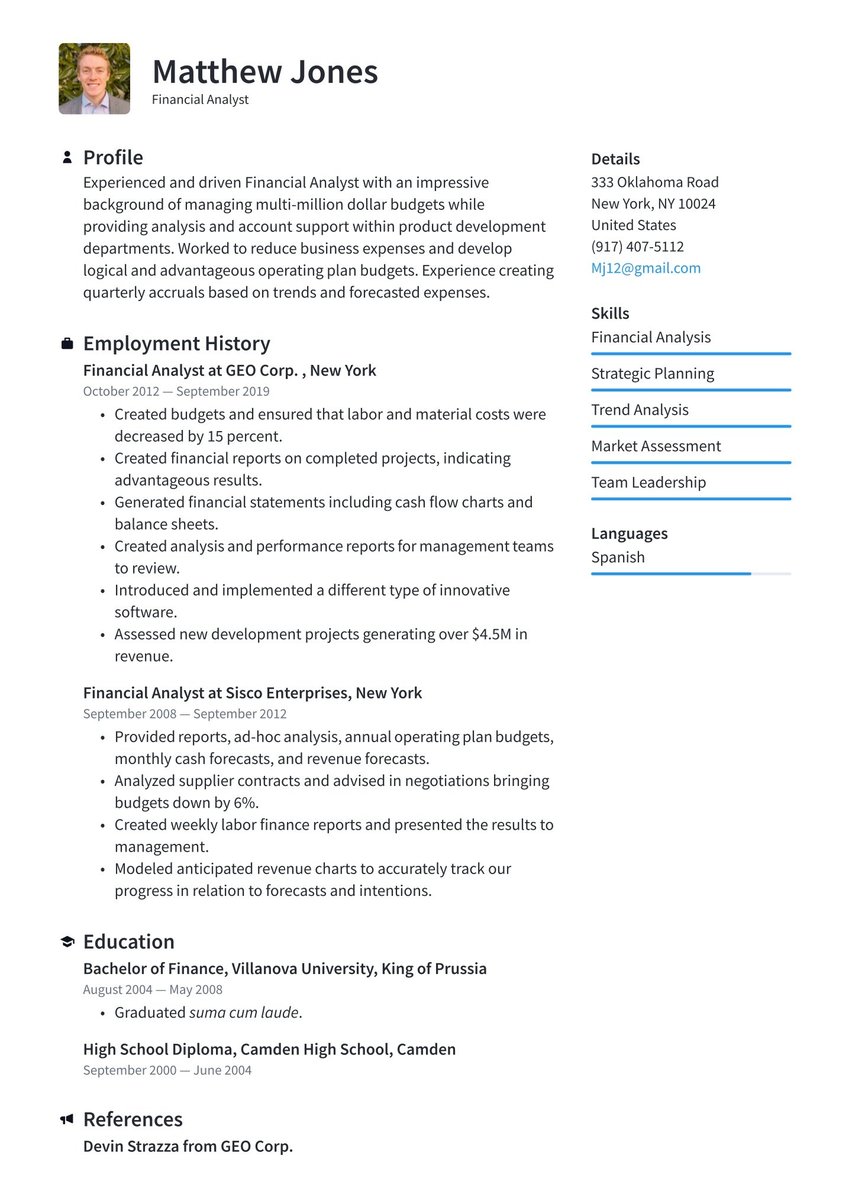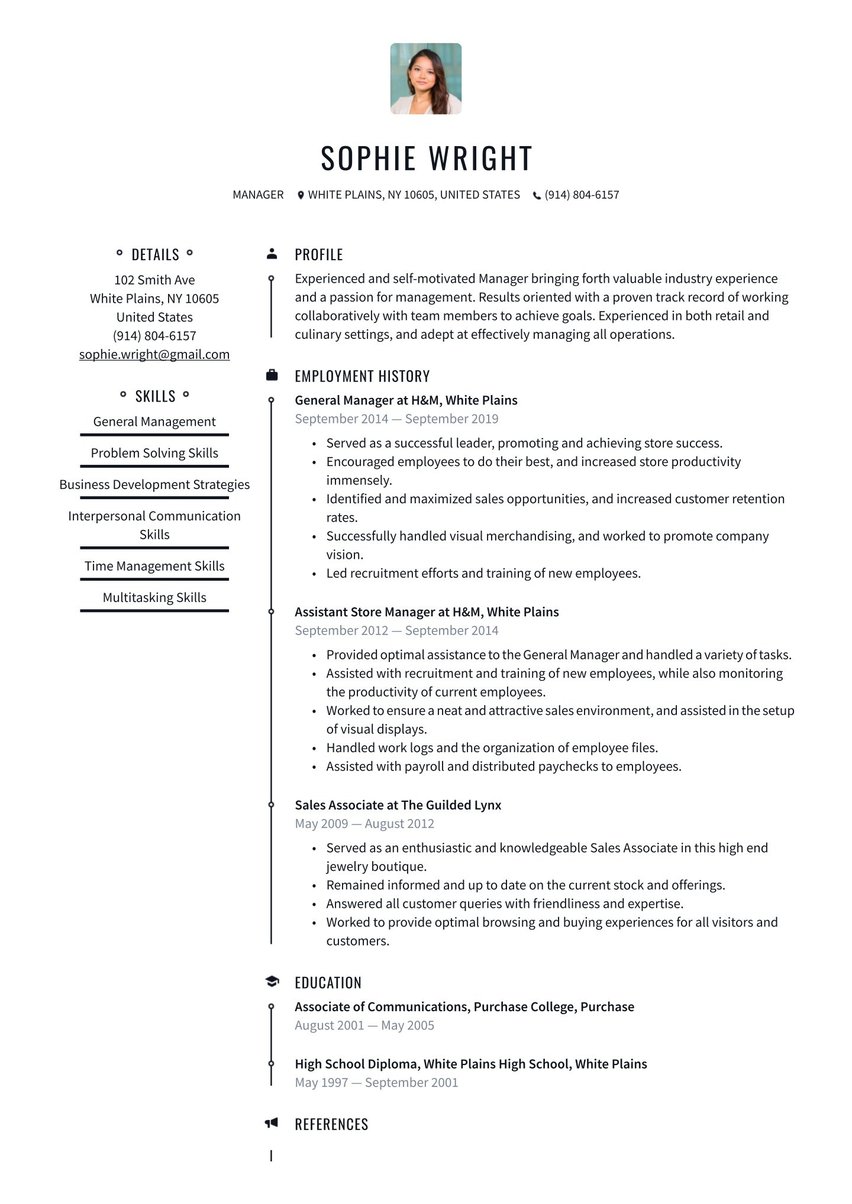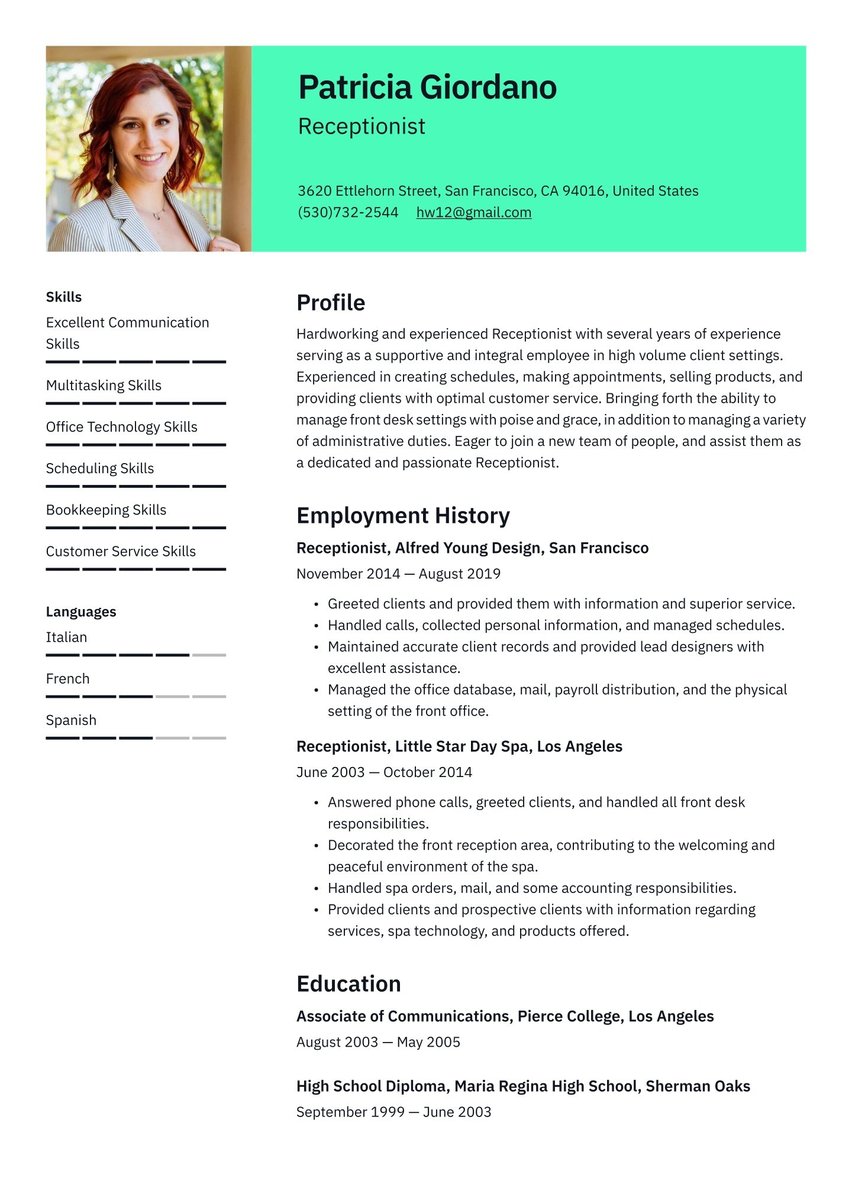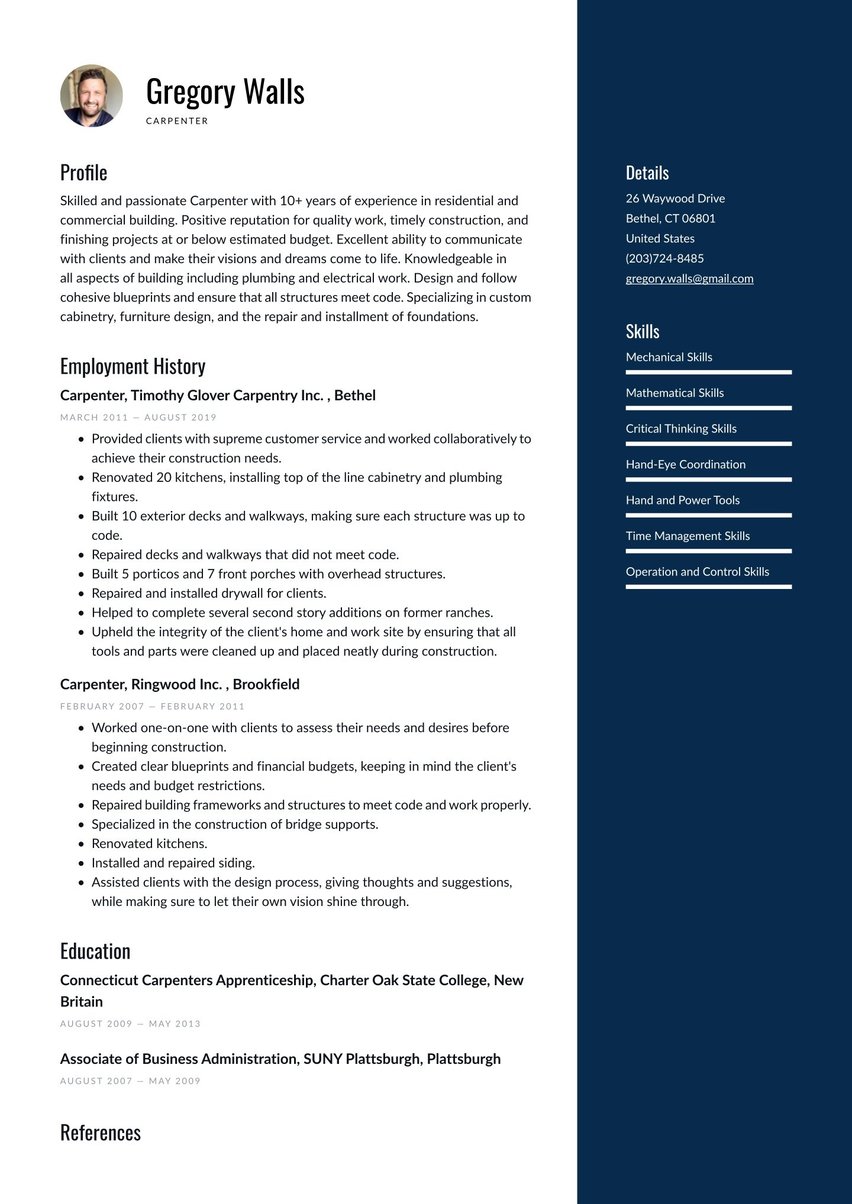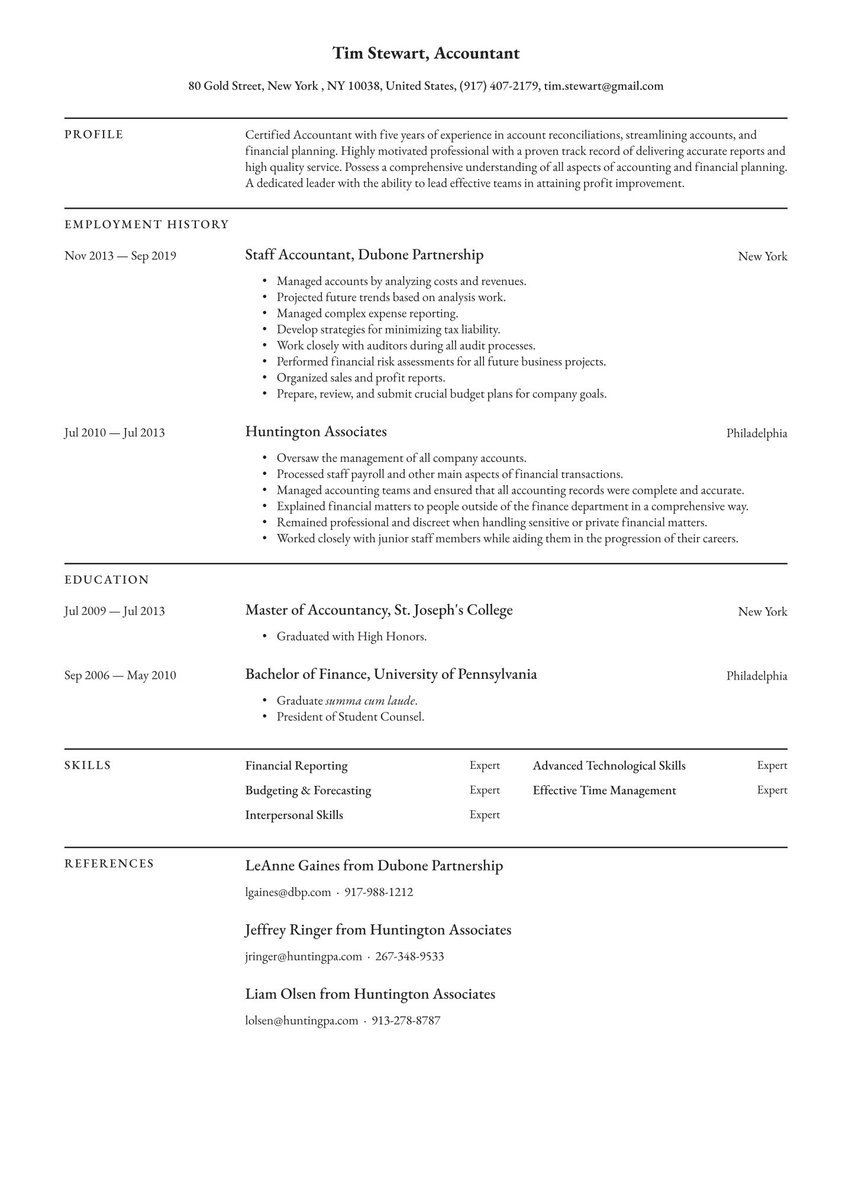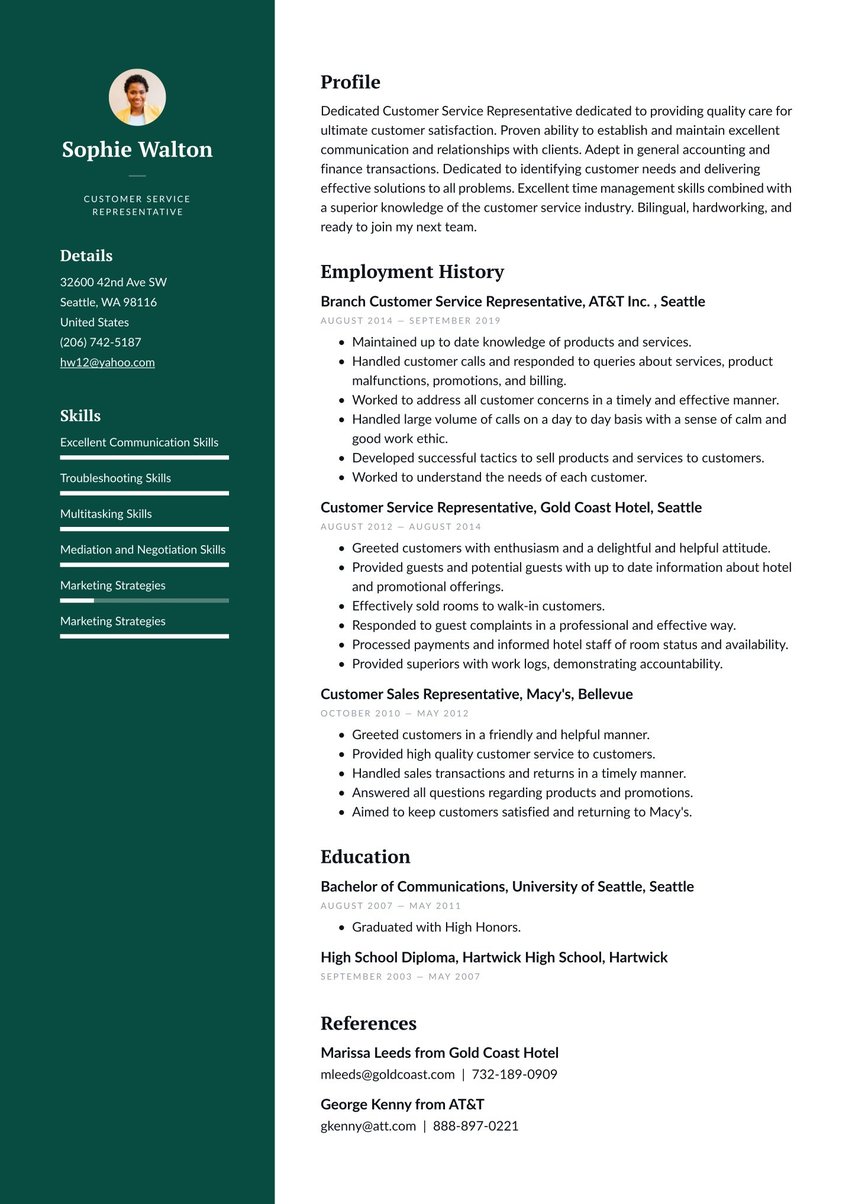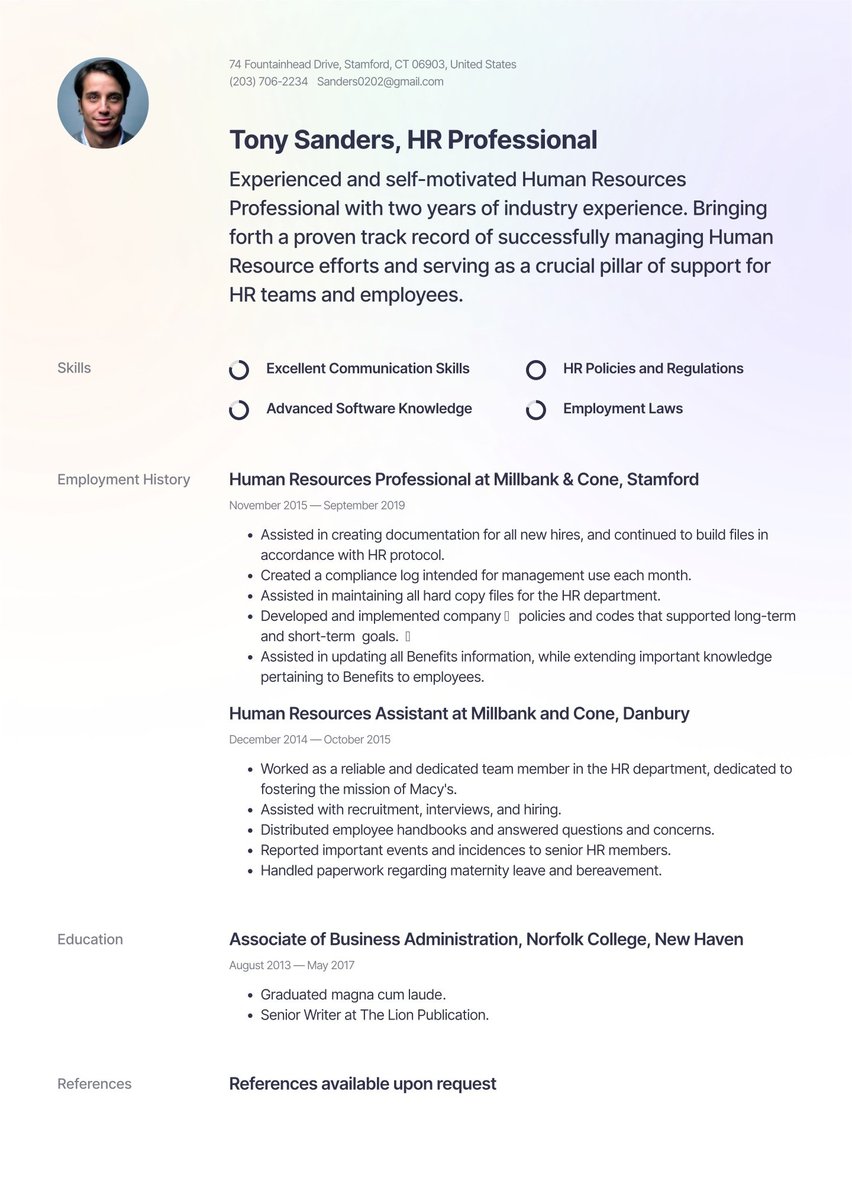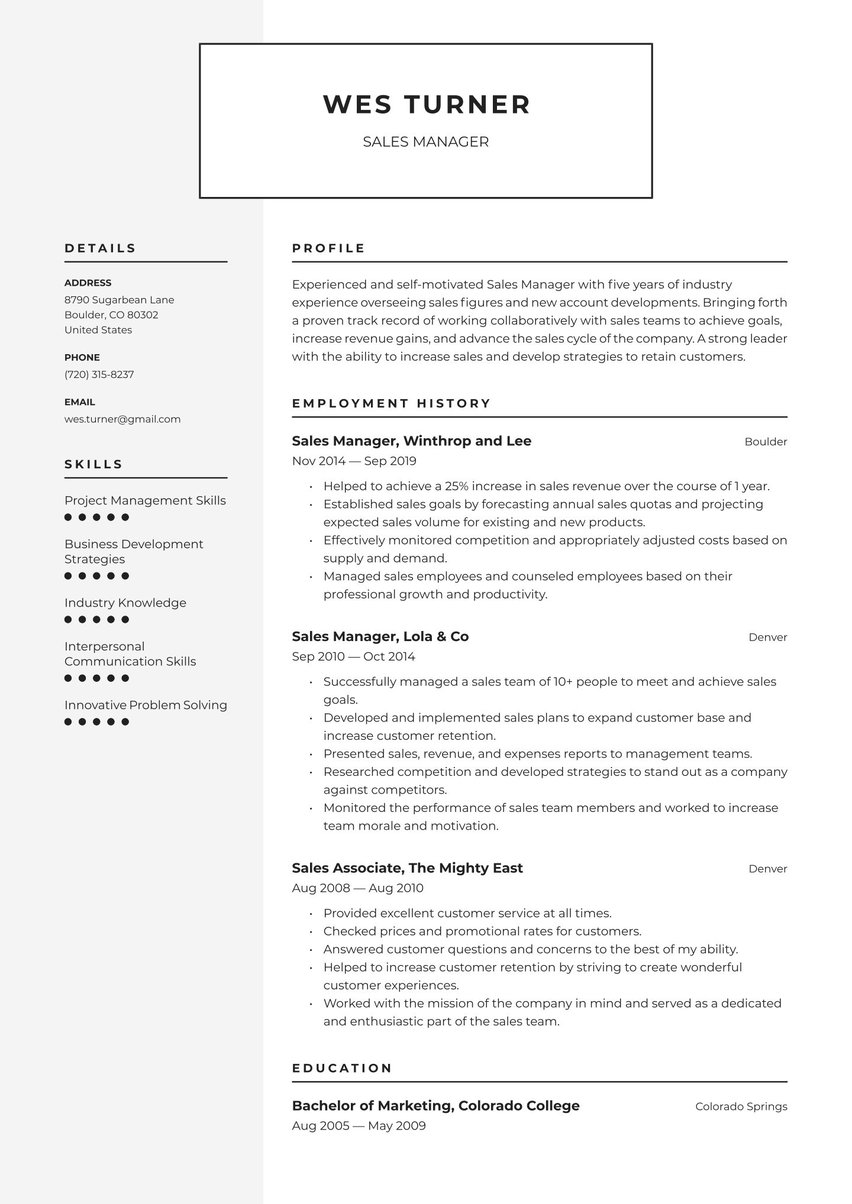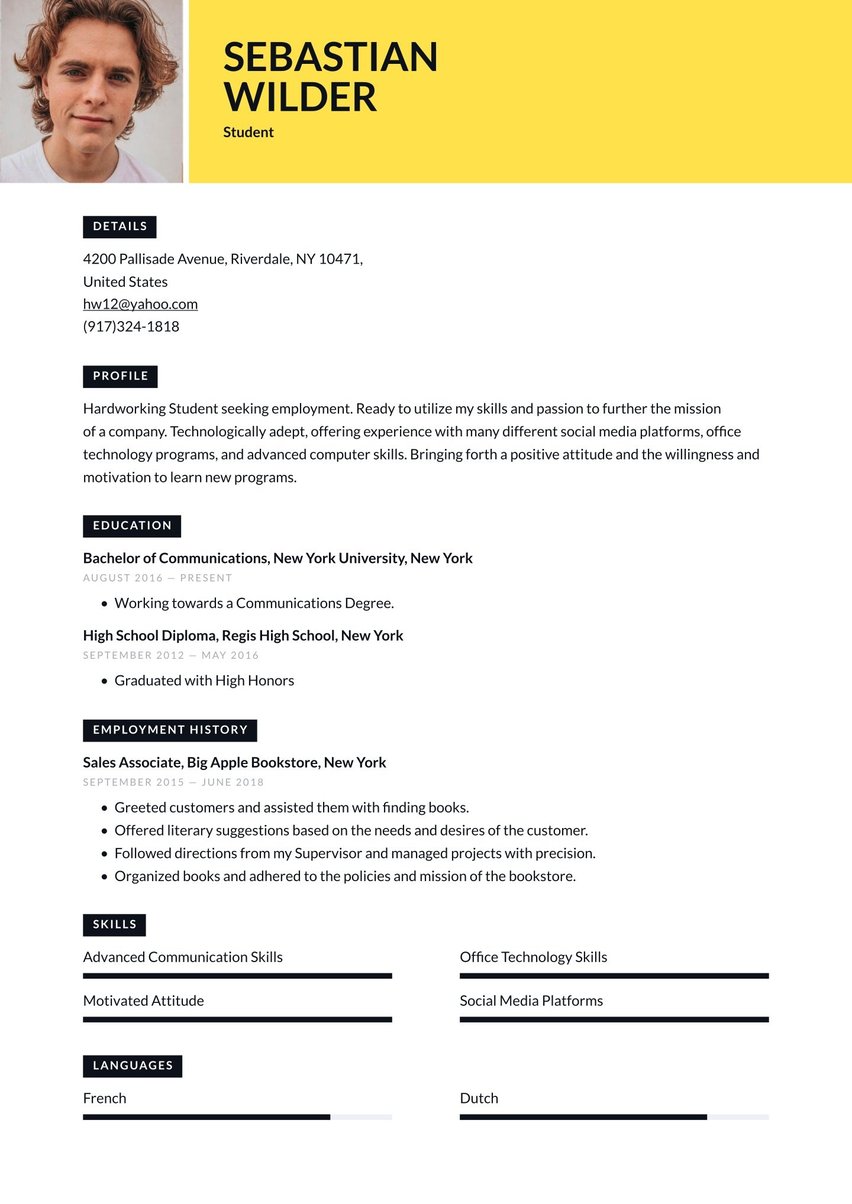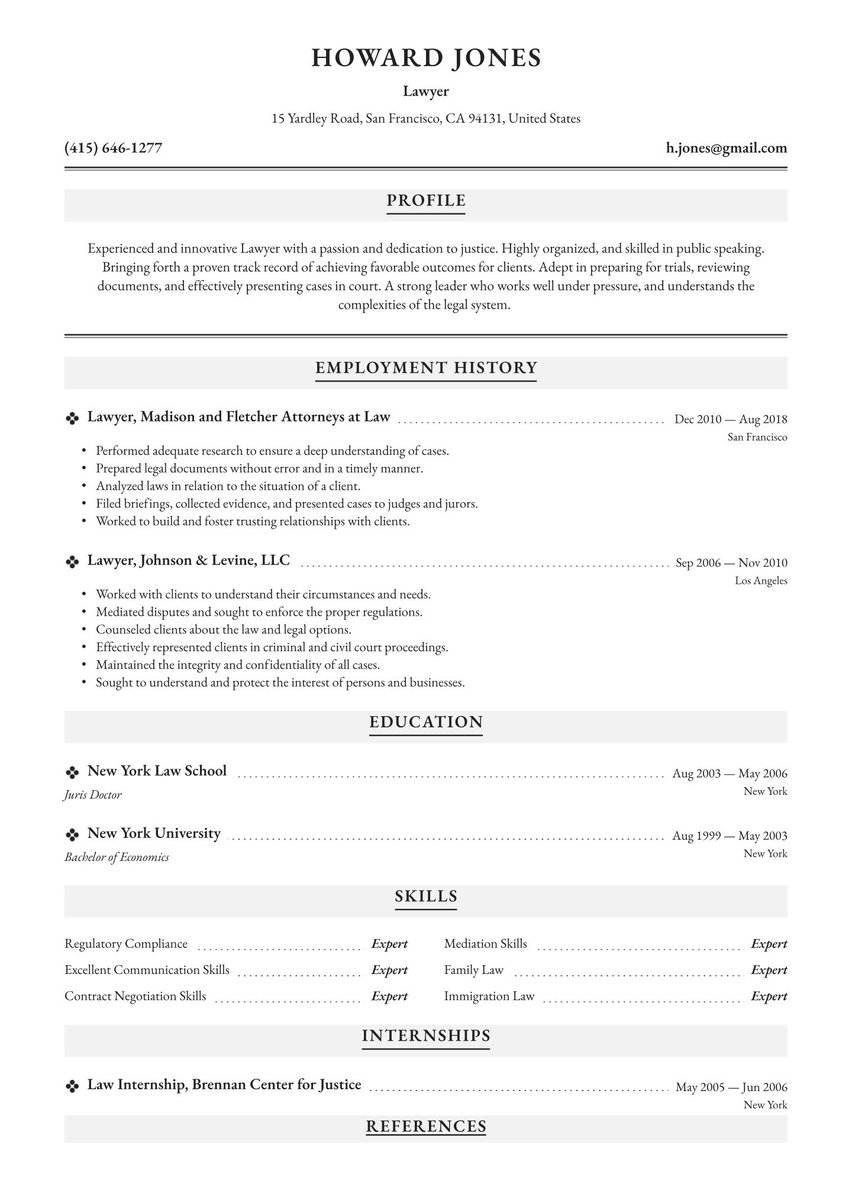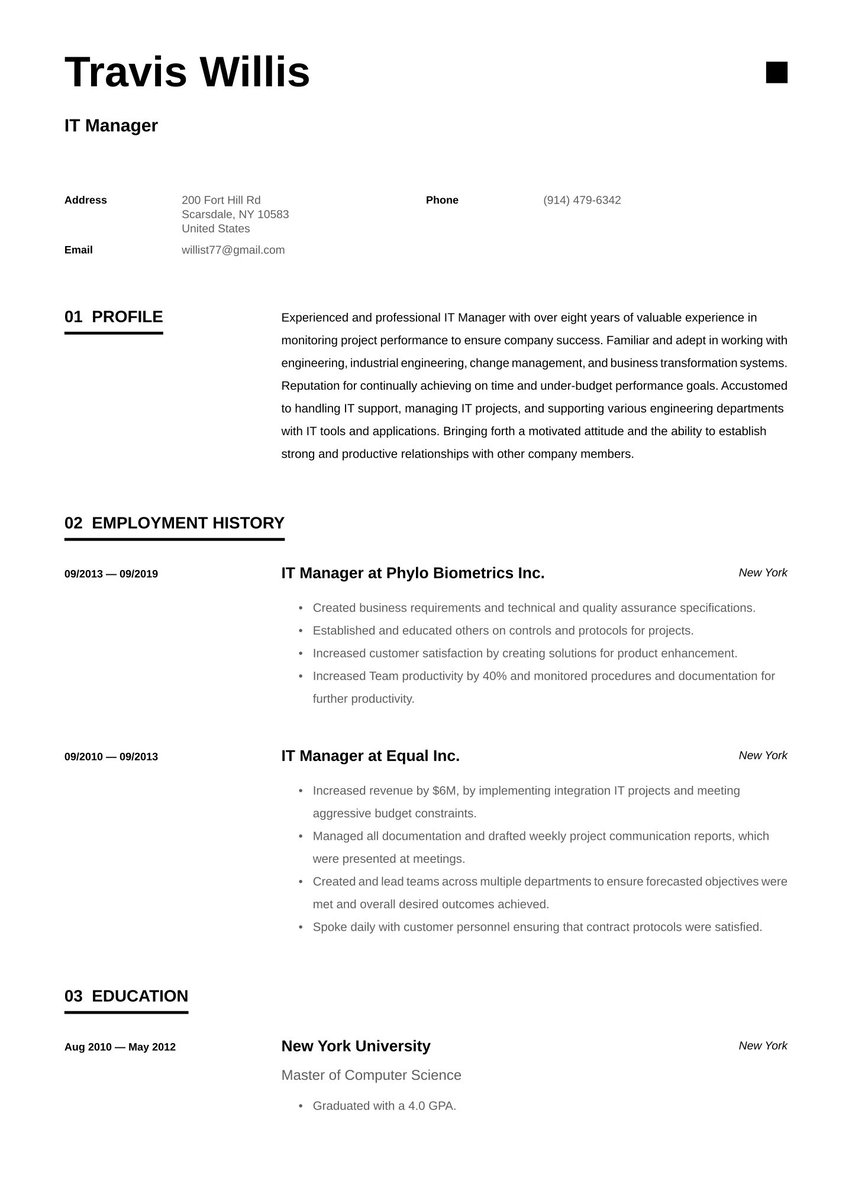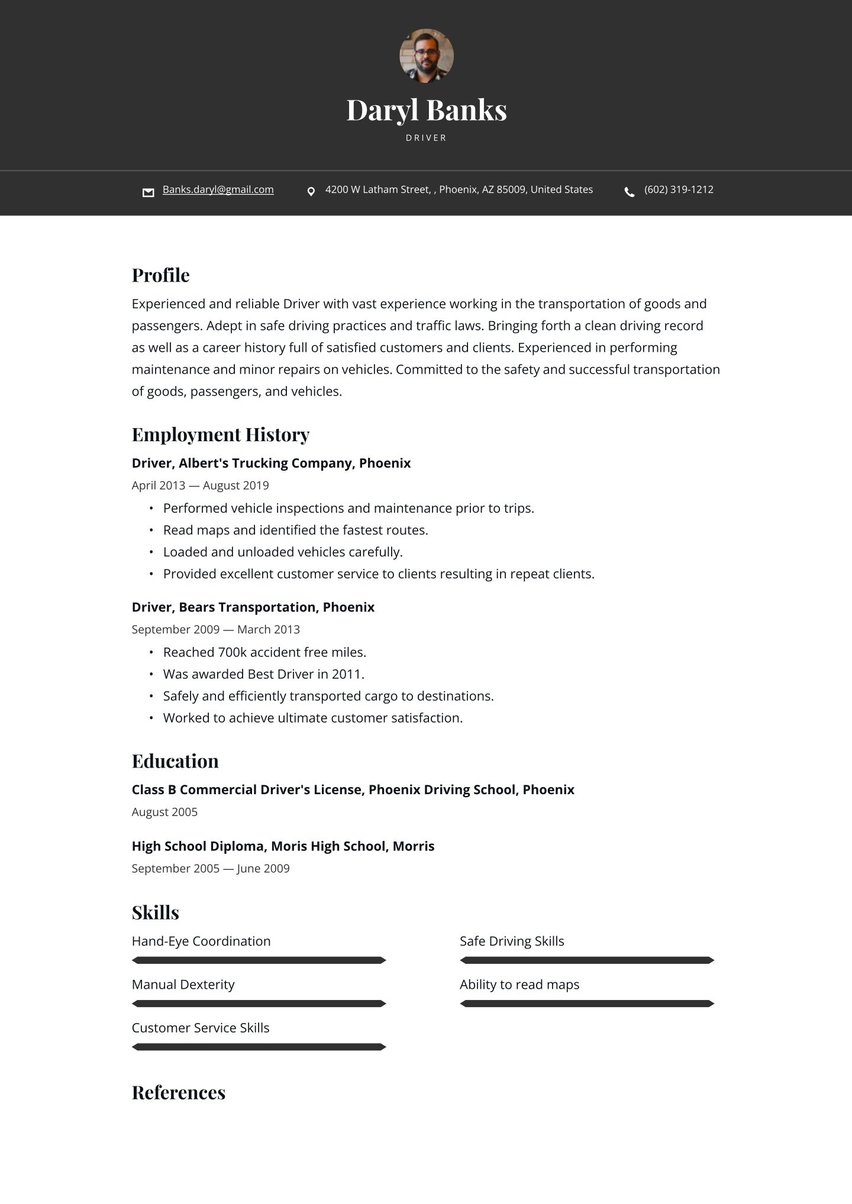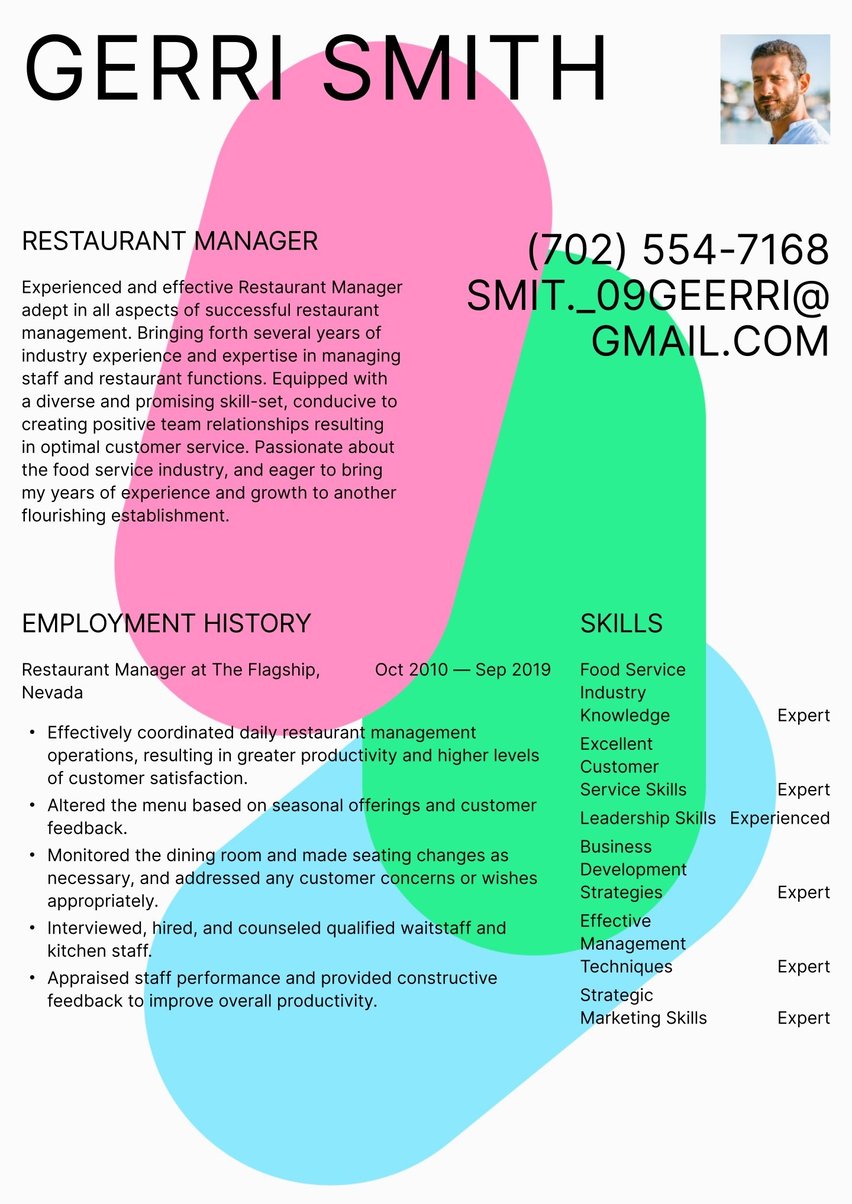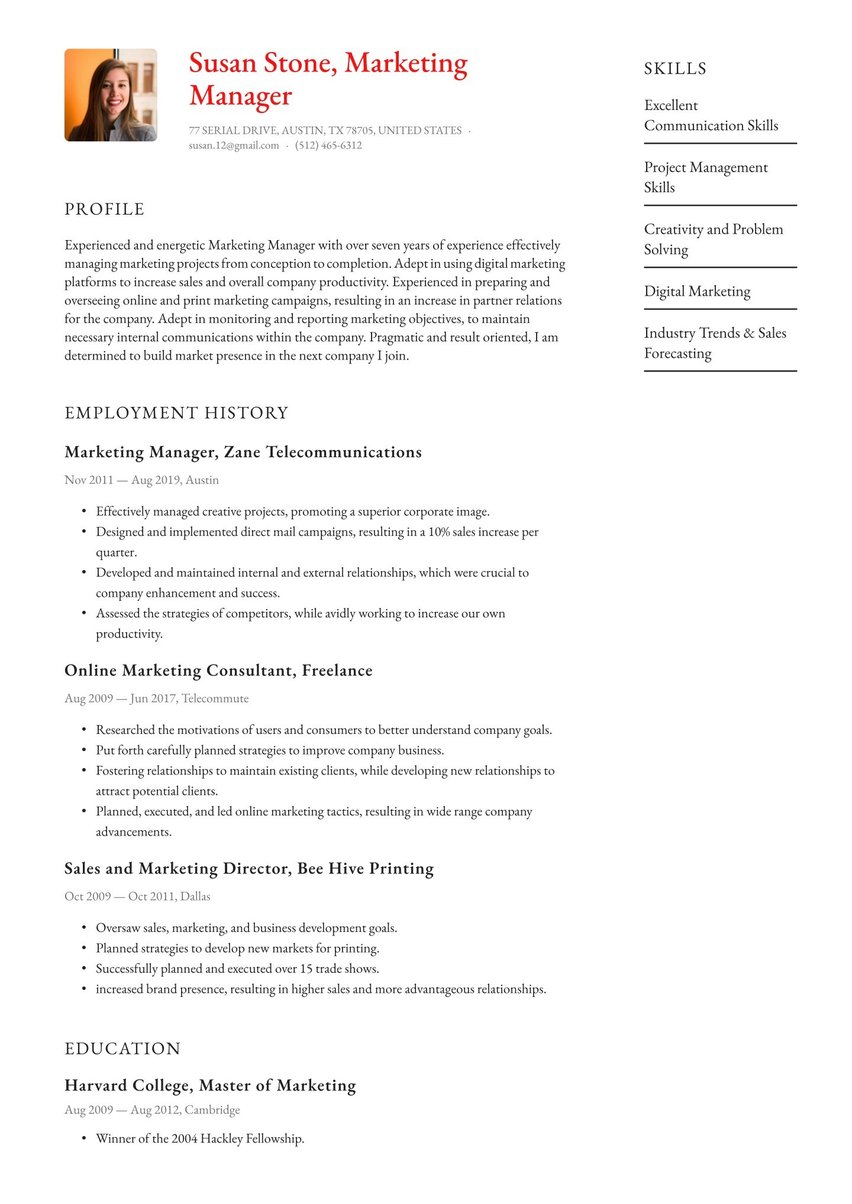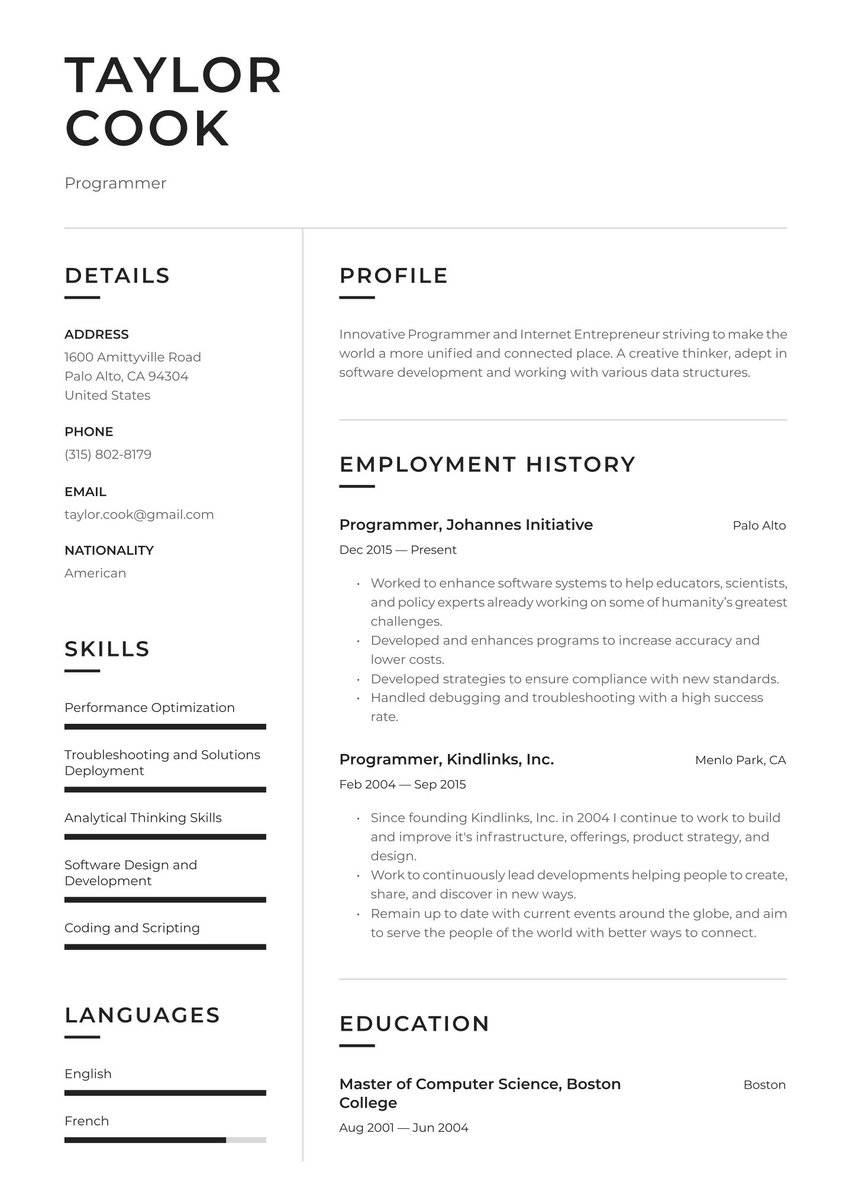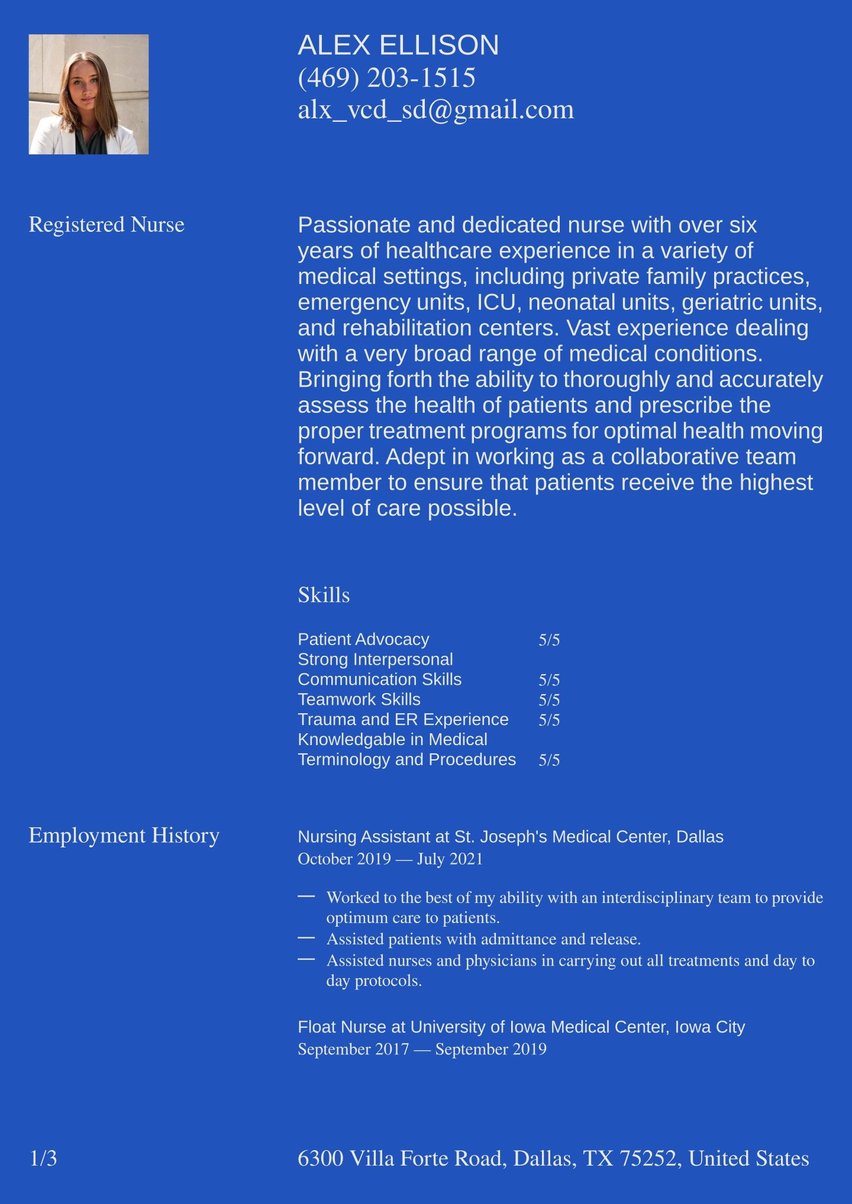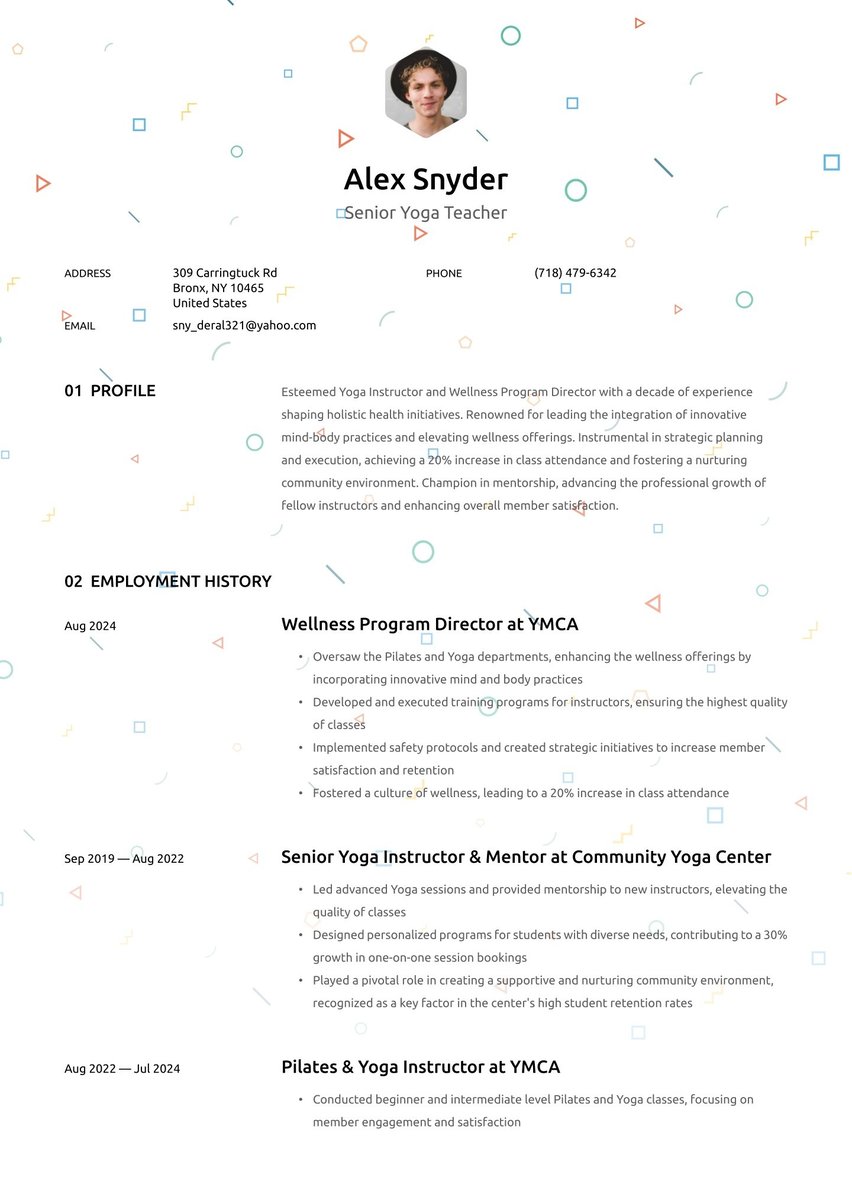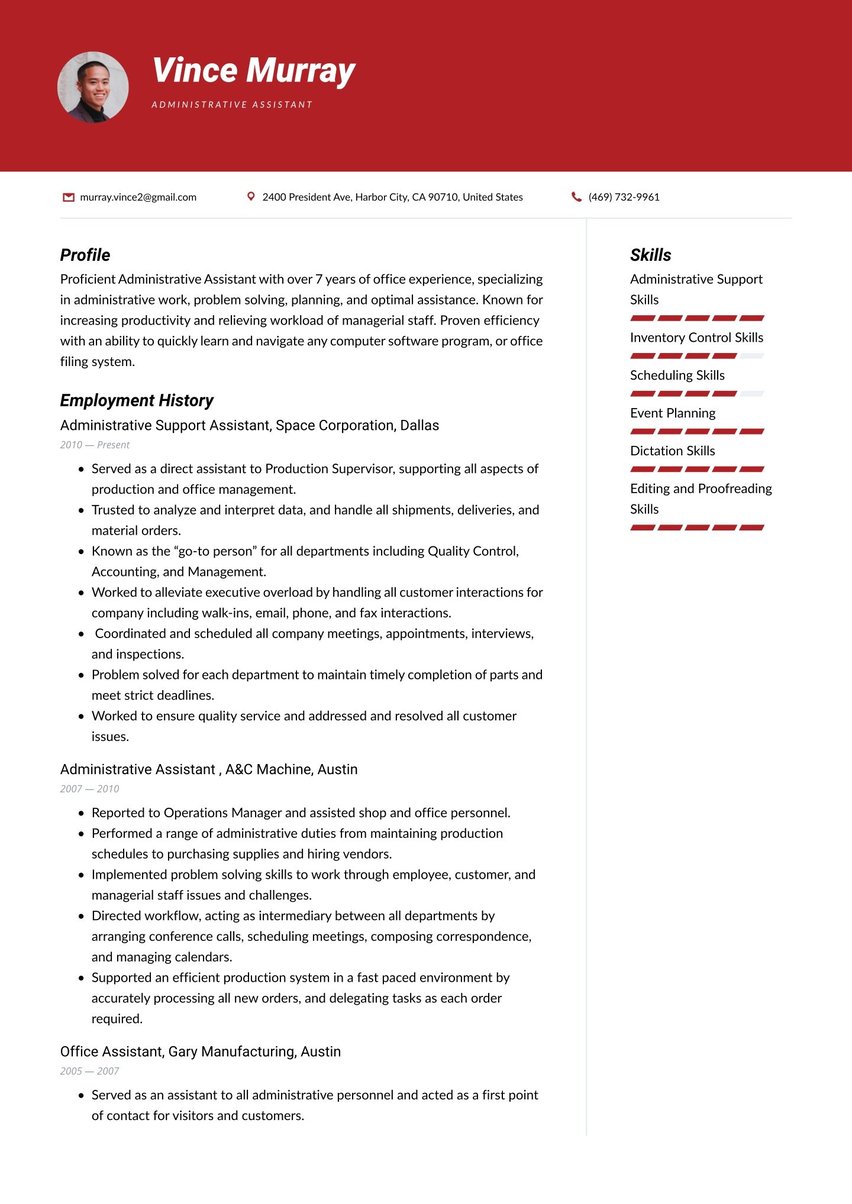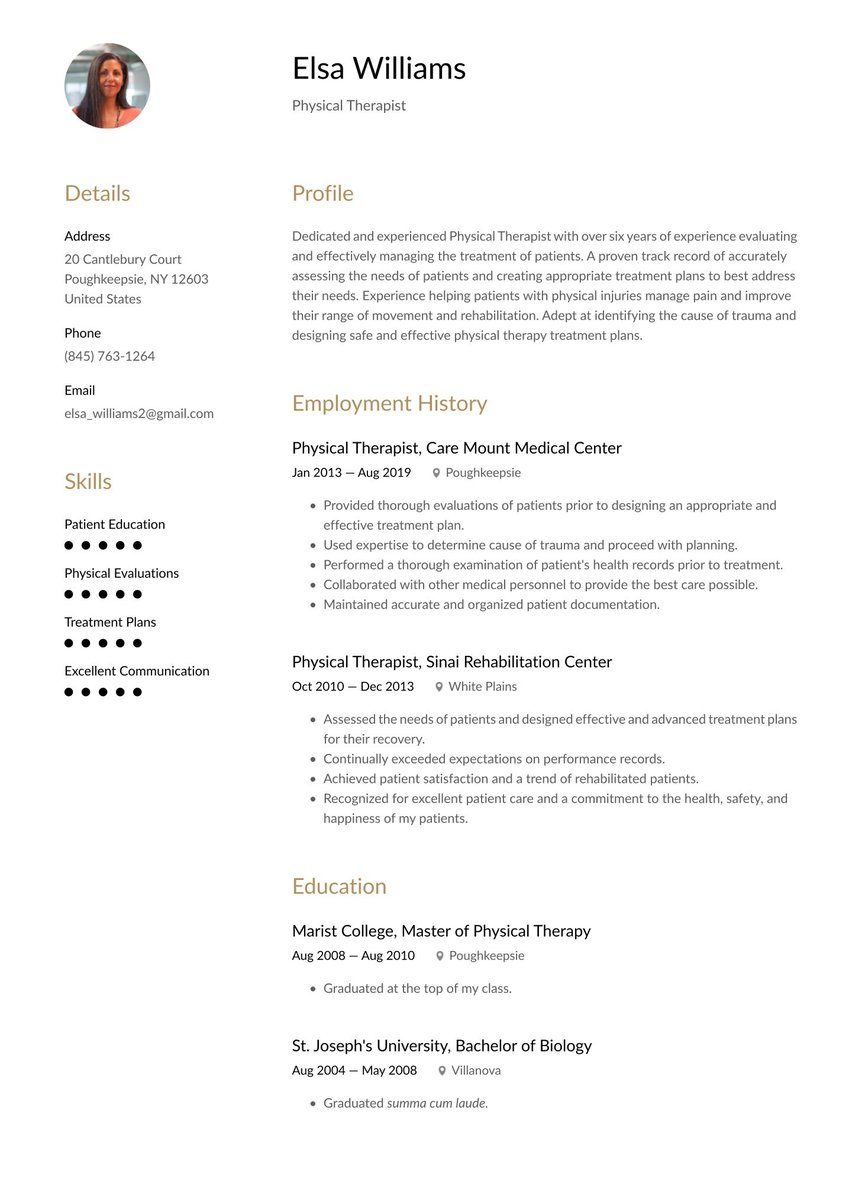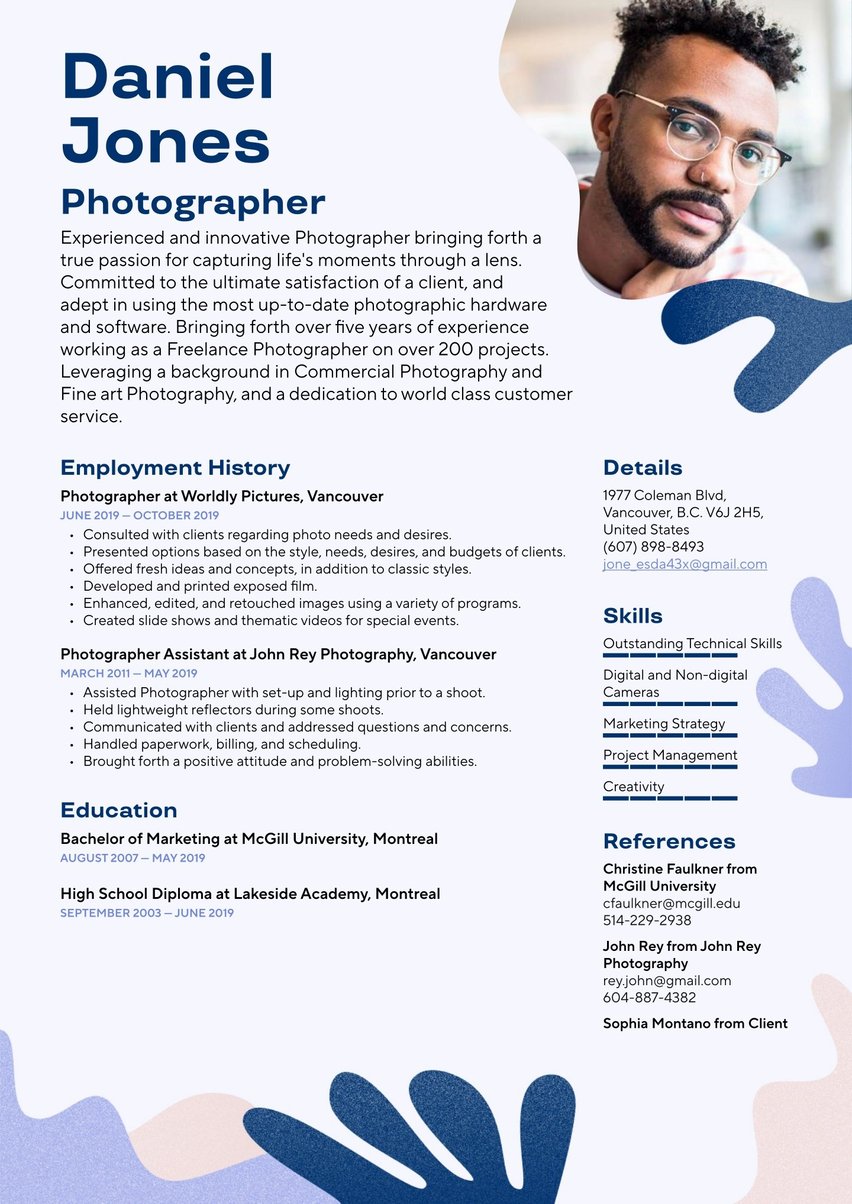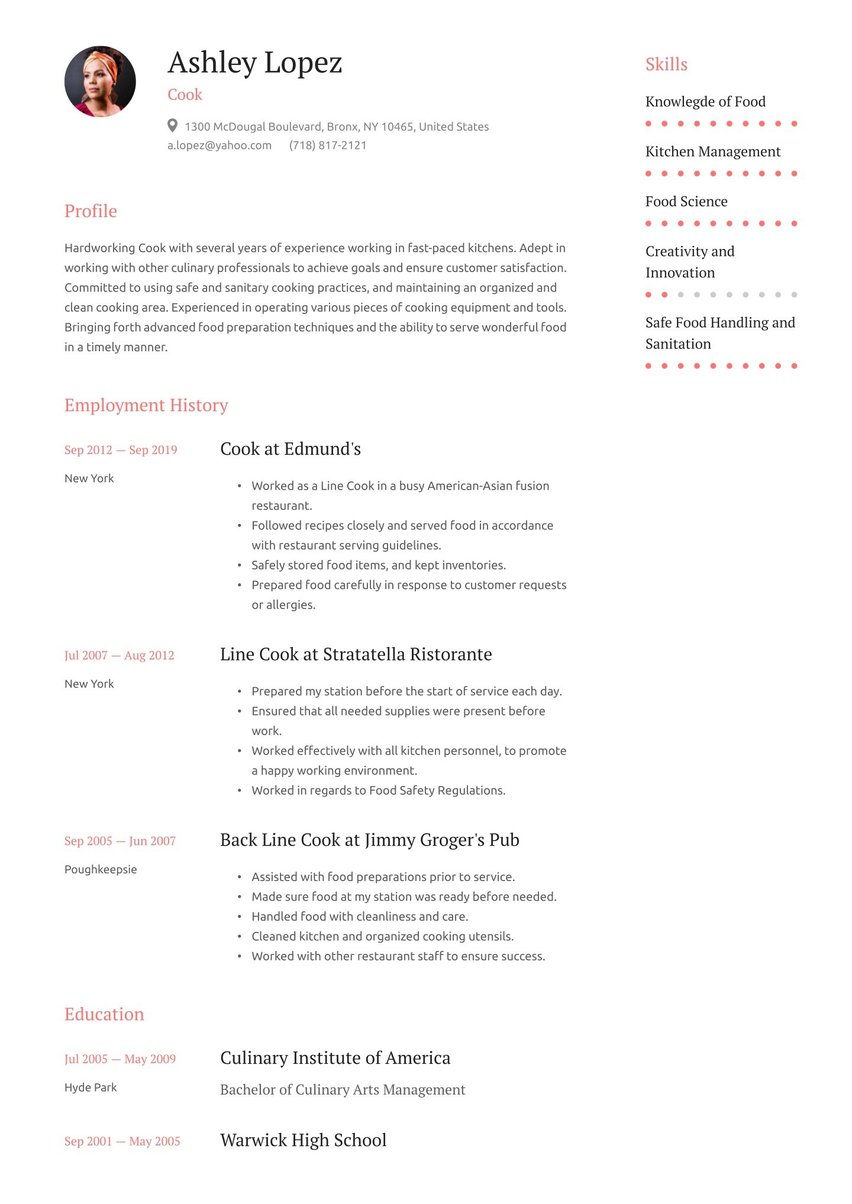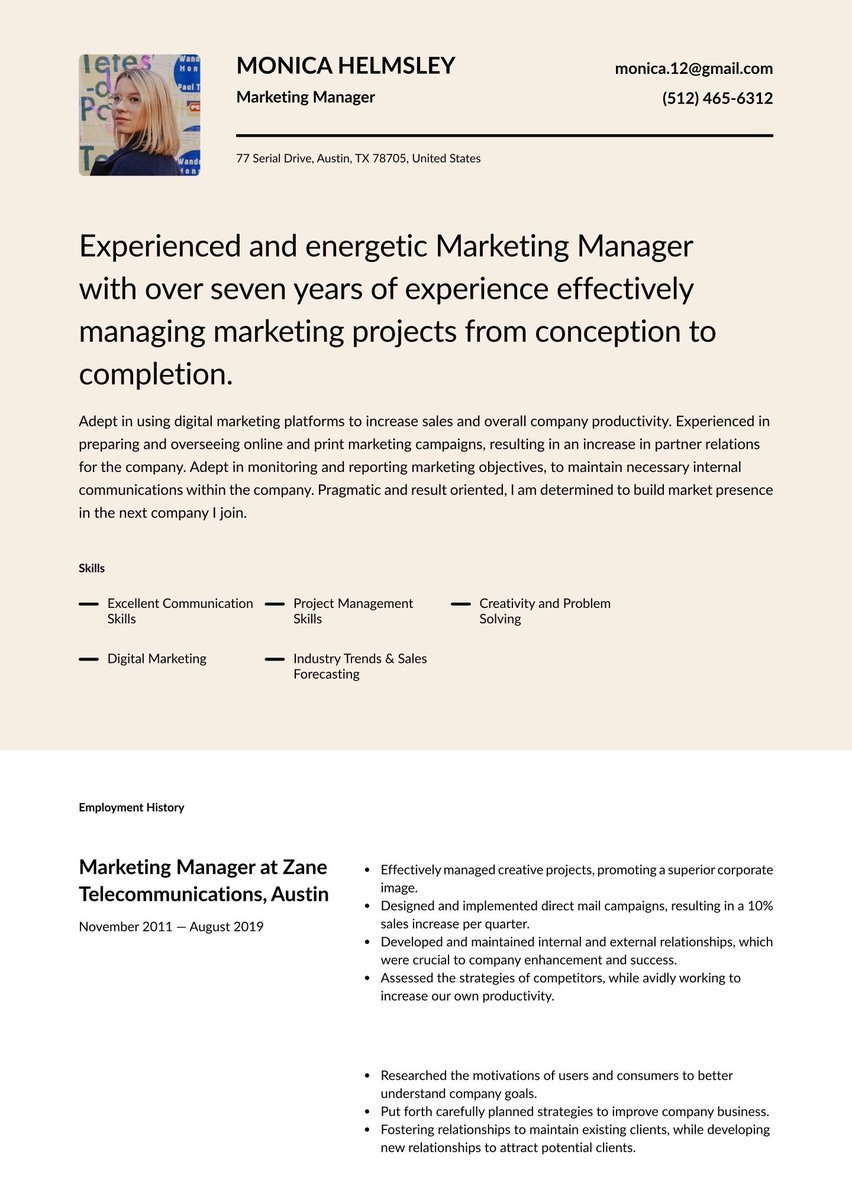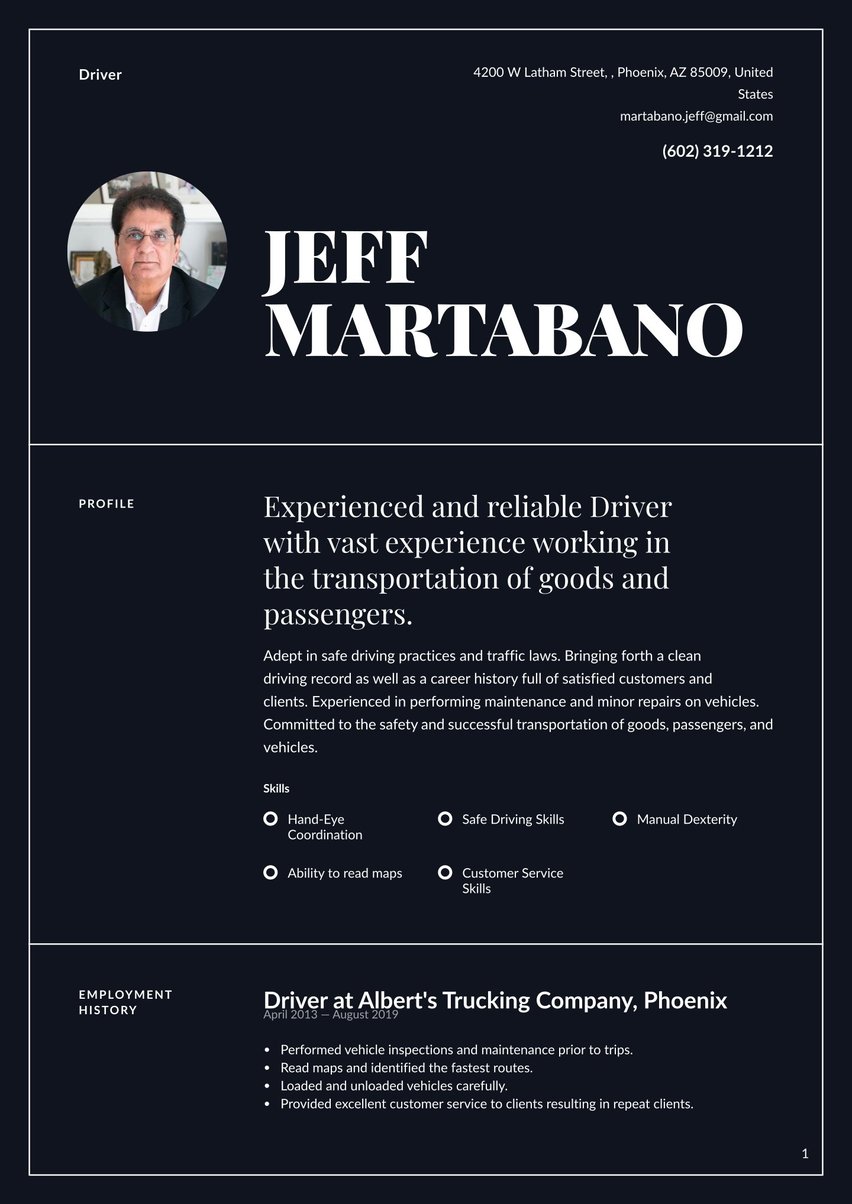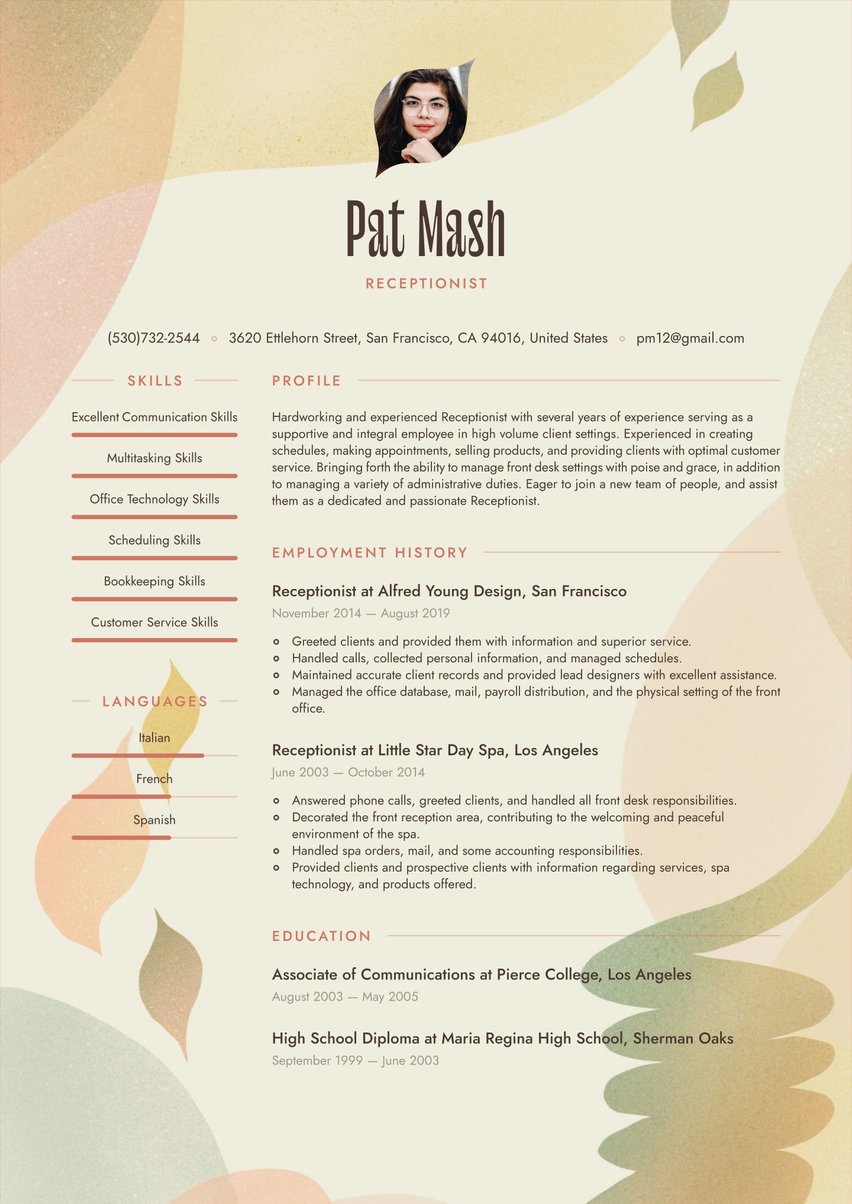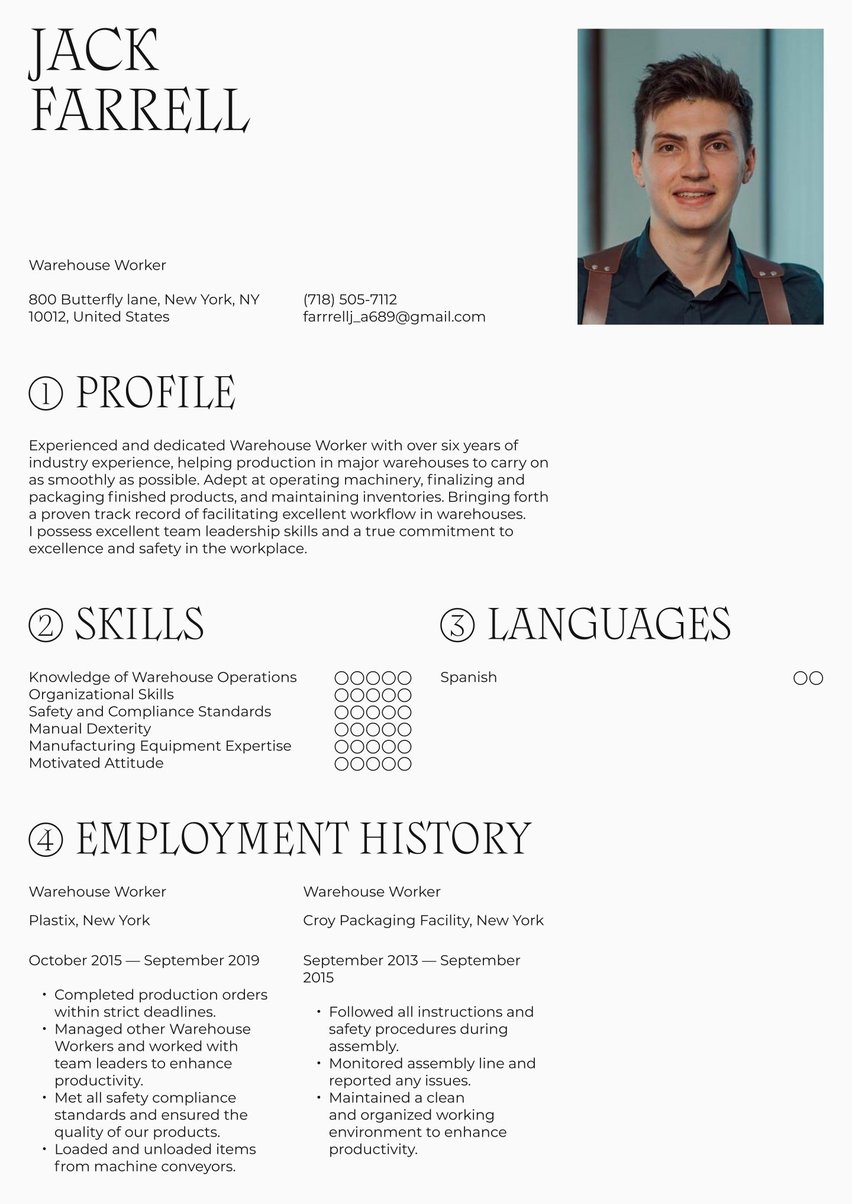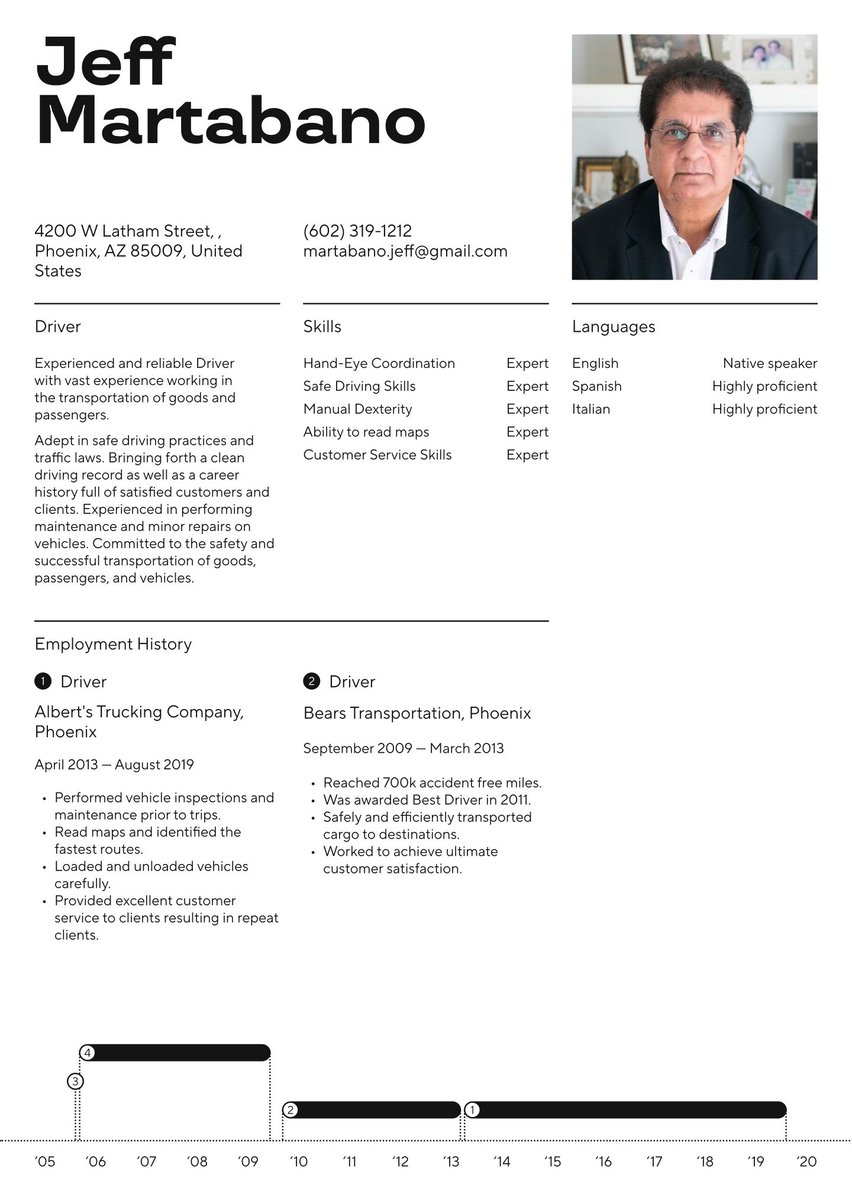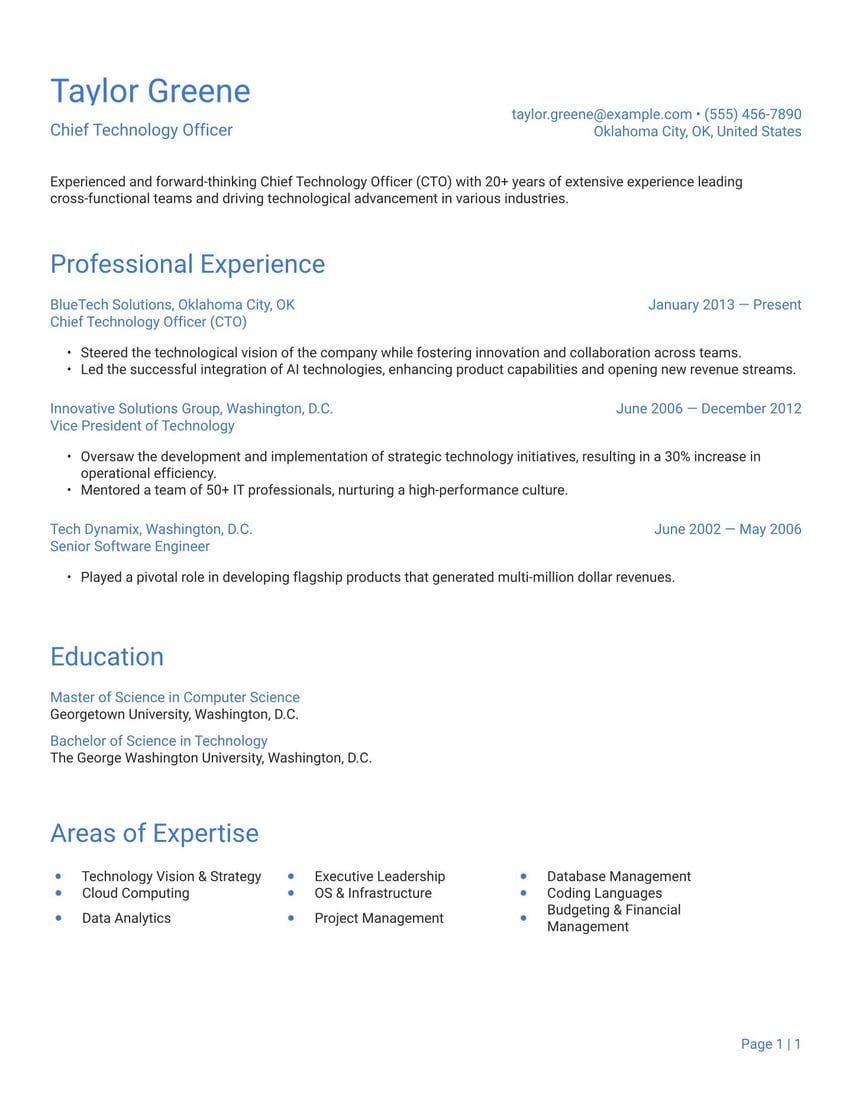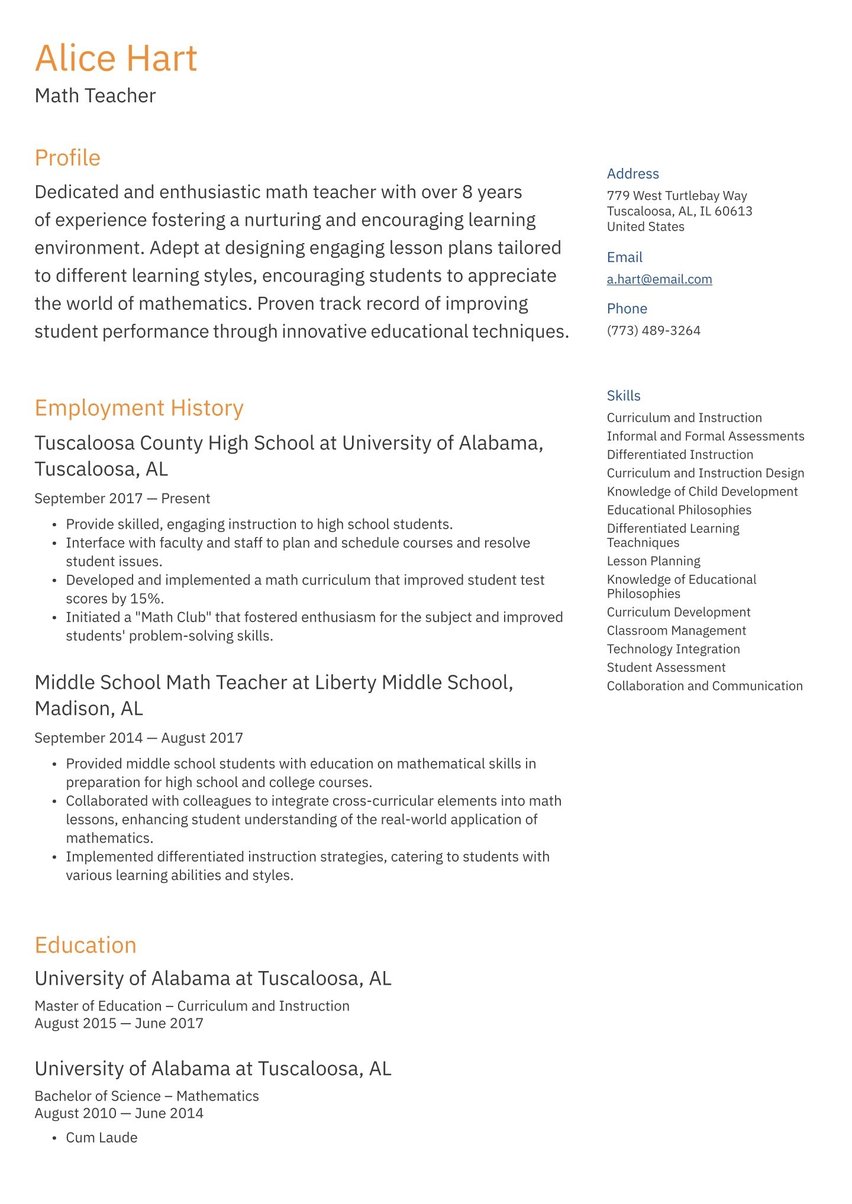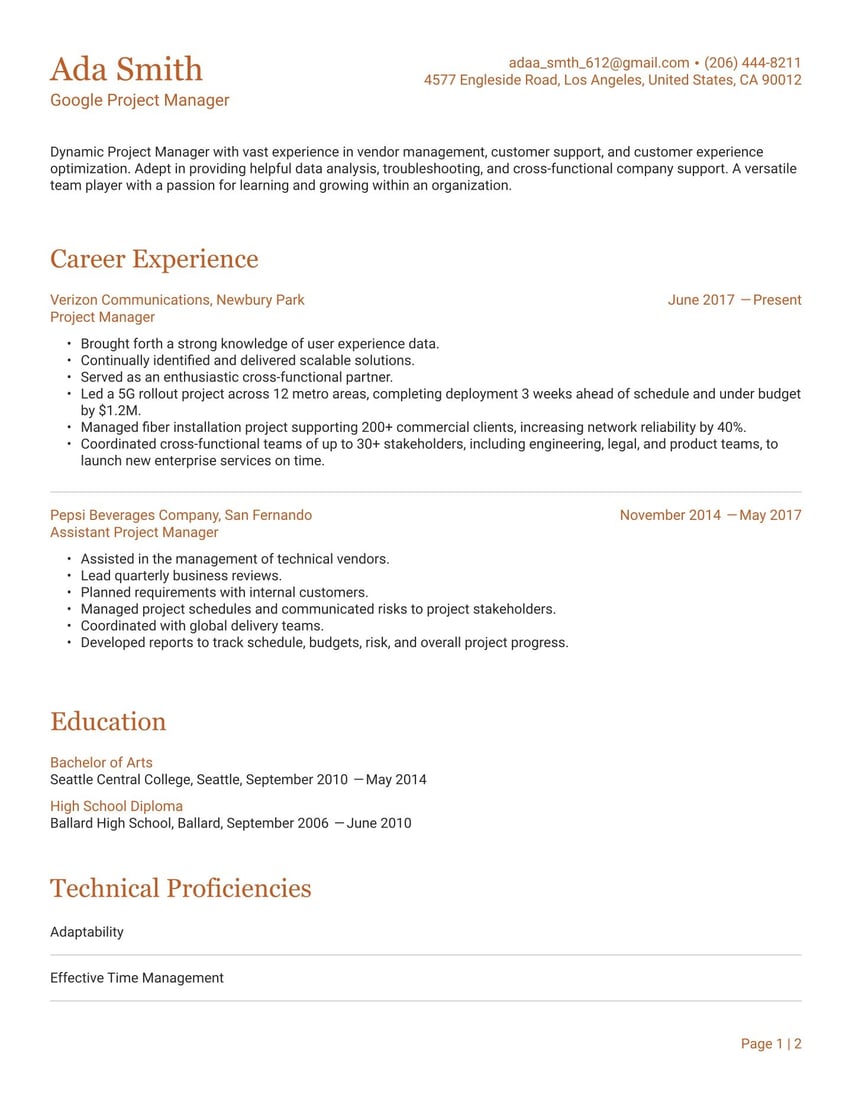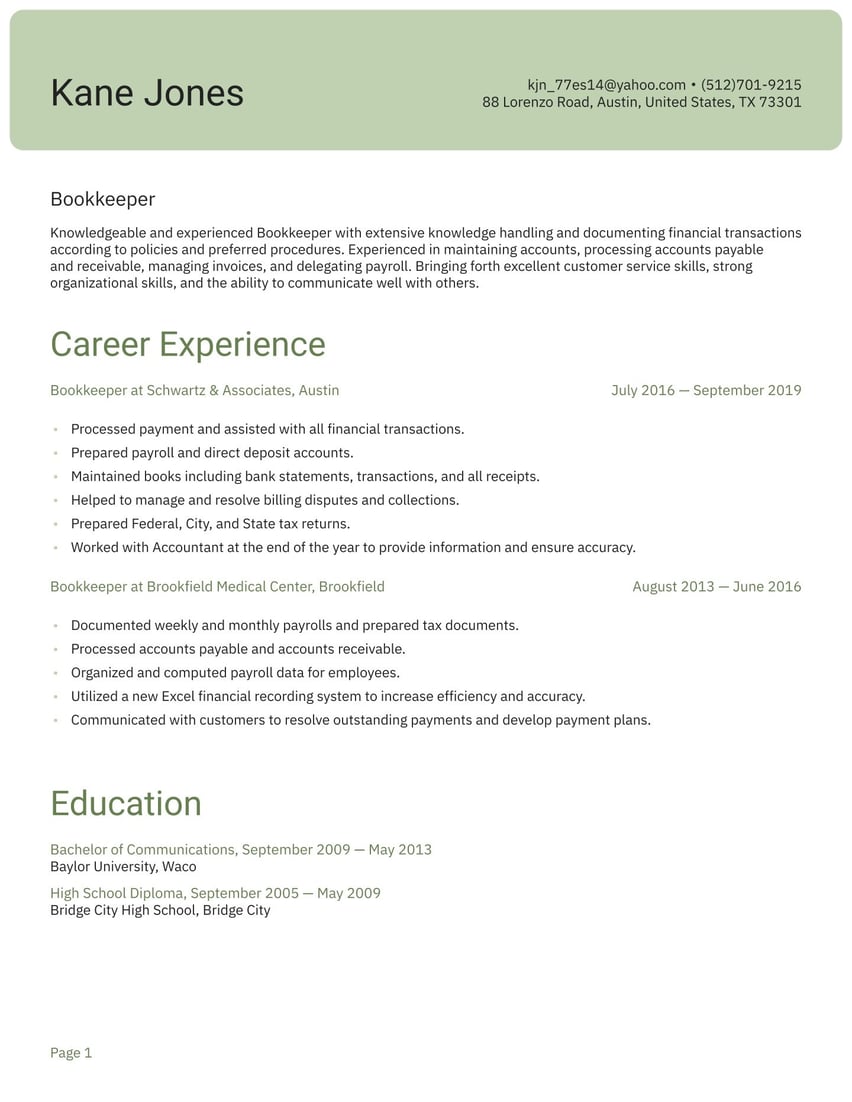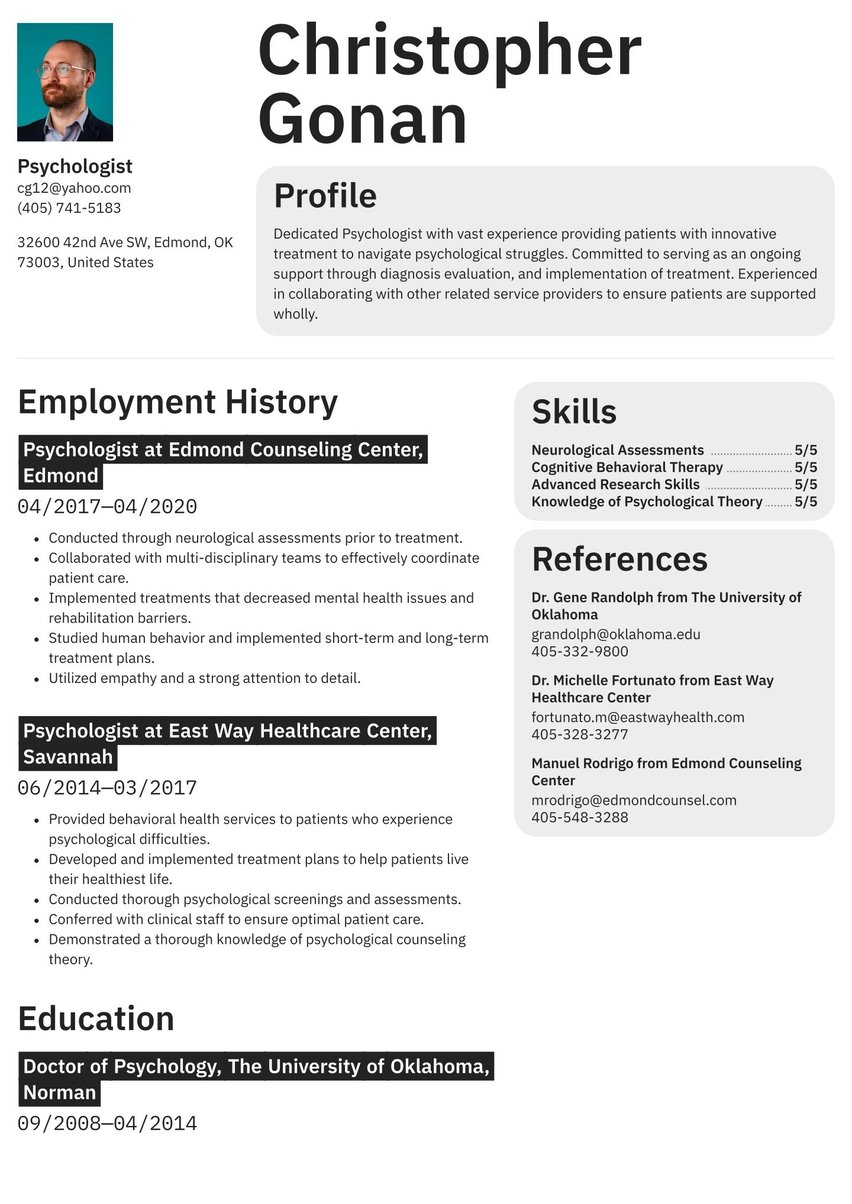Passionate and driven Screenwriter bringing forth 8 years of screenwriting experience. Adept in all aspects of script and story development, screenplay structure, character creation, and the intricacies of story structure. Self-motivated and committed to striving for innovation, originality, and awe-inspiring stories.
09/2016 - 03/2019, Screenwriter, , Los Angeles
- Worked as a freelance Screenwriter, taking on numerous assignments and completing several feature and television scripts.
- Brought forth a strong sense of discipline enabling me to write every day.
- Continuously edited and perfected stories until final drafts were produced.
- Collaborated with other creative professionals to achieve vision goals.
- Secured two Option Agreements and networked diligently to gain a more in-depth understanding of the industry.
12/2012 - 06/2016, Script Consultant, Worldly Stories Inc. , Los Angeles
- Proofread and evaluated scripts for clients. Offered them suggestions and techniques to consider.
- Used a weighted evaluation system during script assessments.
- Helped clients to fully understand the importance of plot, premise, characters, dialogue, structure, theme, tone, marketability, and formatting.
- Provided clients with detailed outlines, edits, and workshop recommendations.
09/2010 - 05/2014, Bachelor of Film Studies, Hunter College, New York
09/2006 - 05/2010, High School Diploma, Xavier High School, New York
- Spanish
- English
- Chinese
- Creativity and Innovation
- Fiction and Non-fiction Writing
- Character Development
- Screenwriting Software
- Collaboration Skills
As a screenwriter, you’re an expert at putting pen to paper and bringing ideas to life. Screenwriters are in charge of writing screenplays, and collaborating with a host of creative types. It’s easy to see why it is an attractive job for a talented writer, but that doesn’t mean you find it easy to write your own story when it comes to your resume.
With entertainment productions picking up the pace again, opportunities in the industry are looking promising. Sure, this might make things competitive. However the writing is on the wall – there’s no time like now to update your screenwriter resume. Enter Resume.io.
You’re already an expert storyteller. We’re here to support you as you translate your own professional history into a story that your next employer wants to star in. We have a library of resume examples for 250+ professions that you can take inspiration from. Plus, this writing guide will include screenwriter resume example, and will will cover the following topics:
- What does a screenwriter do?
- How to write a screenwriter resume (tips and tricks)
- The best format for a screenwriter resume
- Advice on each section of your resume (summary, work history, education, skills)
- Professional resume layout and design hints.
What does a screenwriter do?
A screenwriter is a creative professional who writes screenplays for television or film. A screenplay is the text that transforms an original idea - or adapts an existing concept - into a script for production. As a screenwriter, you’re an expert at outlining stories and planning scenes into a script.
Screenwriters are often expected to use specific software to format and structure their screenplay to industry standards. You can also expect to work closely with writers, directors, and other creative professionals to make sure the screenplay matches the original vision for the project. You will also be expected to spend time writing autonomously. So being a self-starter, having strong time management skills and creativity are all important traits for a successful screenwriter.
How to write a screenwriter resume
The very first step in writing your screenwriter resume is understanding what sections to include. Your CV should contain the following elements:
- The resume header
- The resume summary (aka profile or personal statement)
- The employment history section
- The resume skills section
- The education section
A screenwriter resume should highlight a candidate’s talent and screenwriting skill-set. You can emphasize your natural talent through the way you craft sections like the summary, while also highlighting acquired knowledge and technical abilities via your former jobs in the creative sphere.
However, the most important point when crafting your resume is to match the tone of what your employer is looking for. Be specific and detail-oriented to spell out why you fit this role in particular. By spelling it out, your potential employer will be able to gain a greater understanding of your value as a screenwriter. You can read more about how to fill out each heading in the corresponding section below.
Looking for your first screenwriter job? Everyone has to start somewhere. You can build your resume with relevant experience and skills from other creative positions. Here is a freelance writer resume example, production assistant resume example and theatre resume example you might find useful.
Choosing the best resume format for a screenwriter
The reverse chronological format is the best resume format for a screenwriter resume. Experience as a screenwriter or similar roles is a sure-fire way to convince the hiring manager that you have the skills and expertise necessary for the position. This format draws the main focus to the employment history section where you list your previous work experience.
Even if you’re lacking paid screenwriting jobs, don’t be discouraged. You should still list your internships or other job roles in industries with transferable skills. If you have limited work experience in general, you could consider a functional resume format. This will concentrate on your skills and education. However, for most resume examples the reverse chronological format is favored by hiring managers and automated CV scanners alike.
Resume summary example
The resume summary is the part of your screenwriter resume where you become the star. The hiring manager will want to know a bit more about the individual they’re taking on for the project. This is also one of the few sections of your resume where you can write in freeform and prove where your skills lie.
Keep it short: three to five sentences is all you’ve got. It’s your chance to directly tell your hiring manager your accomplishments and traits that make you the best person for this job. It’s also a handy space to include the keywords that may be scanned to filter out irrelevant applications. Remember to use specific action verbs associated with your experiences and accomplishments as a screenwriter. See the summary from our resume sample below.
Before you need to win over the hiring manager with your words, you’ll have to do the same with the CV scanner. It’s more to think about, but we know you’re not shy of a writing challenge.
Applicant Tracking Systems (ATS) will use algorithms to scan and rank candidate resumes. Only the ones who score best will be passed over to the hiring manager. One of the main ways they do this is through the use of keywords. The responsibilities and requirements highlighted on your job listing are likely the keywords programmed into the ATS. To make sure you make the cut, make sure you use any keywords that are true for you in the appropriate part of your CV. They should still read naturally. Finally, ensure your resume example uses common section headings like “Summary” or “Education” so the ATS can find the information it’s looking for easily.
Passionate and driven screenwriter bringing forth 8 years of screenwriting experience. Adept in all aspects of script and story development, screenplay structure, character creation, and the intricacies of story structure. Self-motivated and committed to striving for innovation, originality, and awe-inspiring stories.
Employment history sample
The employment history is where you have the chance to list any previous jobs as a screenwriter, or other roles that are relevant to the industry. Use the job listing as your guide of the keywords and responsibilities that are important to them. This is the best section to express why your experience lines up with what the employer is looking for.
Create a new subheading for each previous job role you want to list. The subheading should show the job title, employer name, dates worked and location. Under each subheading add three to five bullet points that detail your tasks and accomplishments in the role. See the employment history section from our adaptable resume sample below.
- Worked as a freelance screenwriter, taking on numerous assignments and completing several feature and television scripts.
- Brought forth a strong sense of discipline enabling me to write every day.
- Continuously edited and perfected stories until final drafts were produced.
- Collaborated with other creative professionals to achieve vision goals.
- Secured two option agreements and networked diligently to gain a more in-depth understanding of the industry.
CV skills example
An impressive screenwriter CV will take out the guess work and list some of your most important skills as a screenwriter. Use keywords that are emphasized by the employer as an indication of the most important skills they are looking for. If they ring true to you you can add them to this section of your CV – but don’t stop there! A hiring manager looking for a screenwriter is likely looking for a creative mind that can work well in a team. Be sure to communicate your other experience and traits that will tick those boxes for them, too. Below you'll find the skills section from our adaptable resume sample.
Make sure your skills section includes a balance of hard skills and soft skills. It can be easy to fall back on skills that describe how you carry out your work, such as “creative thinker." Try to list some technical skills (hard skills), too. For instance, you could mention screenwriting software you’re comfortable using.
- Creativity and Innovation
- Motivated Attitude
- Fiction and Non-fiction Writing
- Character Development
- Screenwriting Software
- Collaboration Skills
Screenwriter resume education example
The education section of your resume is important to screenwriters because it gives the hiring manager an idea of your journey into the profession. Many screenwriters get their start at film school, while others take a more traditional bachelors degree before pivoting into screenwriting. Of course, you may have built your screenwriting career so far through talent and gaining experience on the job.
No matter what your educational background, list your degrees and certifications here. If you have a degree at a bachelor level or higher, there’s no need to mention your high school diploma. Make a note if you achieved honors or distinctions in any of your education, particularly if it’s related to your writing. Completed a writer’s training or course? This is the section for that, too! See some of these tips in action in the resume sample content below.
- 2004-2008 Boston College, Bachelor of Film Studies Boston, MA
- 2000-2004 Riverdale High School, High School Diploma Riverdale, NY
Resume layout and design
The layout and design of your resume is just as important as the writing itself. As a screenwriter, you’re no stranger to the importance of your writing being properly formatted. The same attention to detail should apply here. In fact, a well designed resume is yet another aspect that will show the pride you take in completing work to an impressive standard.
It’s important to keep your layout uncomplicated and clear. As a screenwriter, you want your creativity to shine through the quality of your writing. However, that doesn’t mean your resume layout needs to be boring! You can avoid expensive mistakes and the time it takes to create a professional resume layout from scratch by exploring our resume templates.
Key takeaways for a screenwriter resume
- Bring your professional story to life through your writing and convince the hiring manager of your talent.
- Limited screenwriting experience? Don’t worry. Use other previous roles demonstrating the required skills to build your resume.
- Don’t forget to include the keywords emphasized by the employer to win over that pesky ATS.
- Our adaptable screenwriter resume sample can help you create a neat resume faster.


















